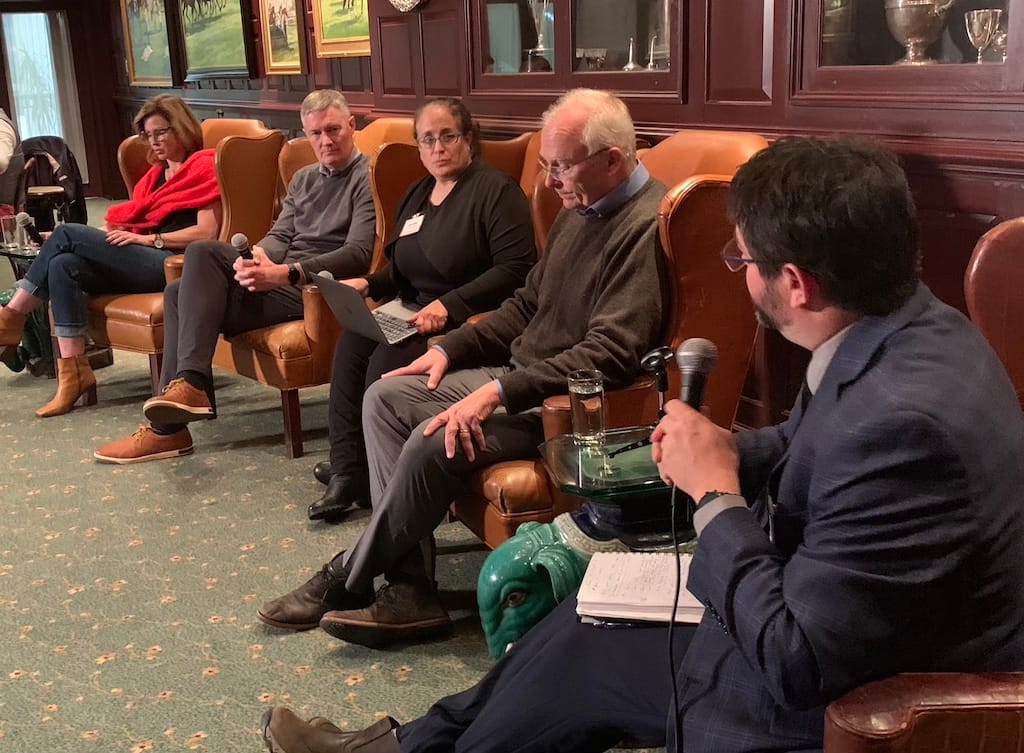Communities Need Governance Seat on Broadband Builds, Conference Hears
Communities need to be involved in decision-making when it comes to broadband builds.
Ahmad Hathout

WASHINGTON, November 18, 2022 – Communities need to be at the governance table making decisions when it comes to broadband builds, according to panelists at Broadband Breakfast’s Digital Infrastructure Investment conference Thursday.
The panel was tasked with tackling the issue of financing community broadband and discussed different funding mechanisms to drive community broadband. There are several states that currently have restrictions on such builds, but money from the National Telecommunications and Information Administration comes with the strings that states and localities must consider community builds as an option.
“[Public-private partnership] has been a euphemism for transferring public money to private ownership, and I think we may see true PPPs come out of this where there is a real partnership where communities have a seat at the governance table and they have a seat at the ownership table,” Jeff Christensen, president and CEO of EntryPoint Networks, which drives software-powered open access networks.
That was met with agreement from Jane Coffin, chief community officer of Connect Humanity, an organization that advocates for internet infrastructure and digital literacy.
“Governance – the local communities whether they are a city or a small municipality, we have to get more data out to them [and] encourage people to help have a governance role where they may not be in a position to know what’s going to happen with the network unless they are really involved.”
Earlier in the day, a separate panel of experts discussed the need for local community leadership that they said will be key to utilizing the money coming from the NTIA’s $42.5 billion pot of money.
State broadband leaders from Arkansas and Maryland argued for local leadership, which was received warmly by a senior advisor to the NTIA.
“We really want to be partners,” said Phil Murphy, senior advisor in the Office of the Assistant Secretary at the Commerce agency. “We want to work with (states) through this process and to help them leverage the capabilities that we’ve developed so that we’re all working towards the same goal.”
 Broadband BreakfastBroadband Breakfast
Broadband BreakfastBroadband Breakfast









Member discussion